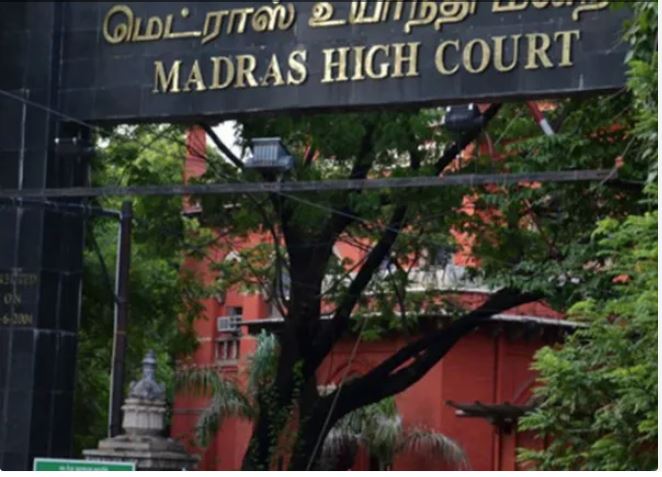The Madras High Court has dismissed a petition filed challenging the validity of Explanation given under Rule 9(1) of Right of Children to Free and Compulsory Education Rules 2010.
The Petition has been filed by one V. Sadagopan.
The aforesaid rule is quoted below :- “9. Responsibilities of the appropriate Government and local authority : – (1) A child attending a school of the appropriate Government or local authority referred to in subclause(i) of clause(n) of section 2, a child attending a school referred to in sub-clause (ii) of clause (n) of section 2 in accordance with clause(b) of subsection (1) of section 12, and a child attending a school referred to in sub-clause (iii) and (iv) of clause (n) of section 2 in accordance with clause (c) of subsection(1) of section 12 shall be entitled to free education as provided for in subsection(2) of section 3 of the Act, and in particular to free textbooks, writing materials and uniforms: Provided that a child with disability shall be entitled also for free special learning and support material. Explanation : For the purposes of sub-rule (1), it may be stated that in respect of the child admitted in accordance with clause(b) of sub-section(1) of section 12 and a child admitted in accordance with clause(c) of sub-section(1) of section 12, the responsibility of providing the free entitlement shall be of the school referred to in sub-clause(ii) of clause(n) of section 2 and of sub-clauses(iii) and (iv) of clause (n) of section 2, respectively.”
Challenge to the Rule has been made alleging burden of the educational institutions in providing the free entitlement to the RTE students. It is further submitted that it is contrary to subsection(2) of Section 3 of the Right of Children to Free and Compulsory Education Act 2009. Section 3 of the Act is also extracted hereunder for ready reference:-
“3(1). Every child of age of six to fourteen years shall have a right to free and compulsory education in a neighbourhood school till completion of elementary education. (2) For the purpose of sub-section(1), no child shall be liable to pay any kind of fee or charges which may prevent him or her from pursuing and completing the elementary education.”
Before addressing the issue, the Division Bench of Chief Justice Munishwar Nath BHandari and Justice N. Mala found it necessary to address the locus of the petitioner. The writ petition has not been filed by the educational institution, but by the individual showing him to be the Correspondent of Little Flower Matriculation School.
“In view of the above, it is clear that the writ petition is filed by the individual having no locus to challenge the validity of the Rule and he is not affected, rather if anyone is affected it is the educational institution. Hence, the writ petition deserves to be dismissed on the ground of locus as it is not otherwise a Public Interest Litigation,” held the High Court.
It is observed by the Court that apart from this, the petition has been filed after a lapse of around 12 years to challenge the Rule brought in 2010. If it was affecting the educational institution, it is from the date of bringing the Rules. No justification for the delay in challenging the Rule has been given in the writ petition. Thus, the writ petition suffers from laches as well.
In view of the above, finding no locus in favour of the petitioner to challenge the Rule, the PIL was dismissed by the High Court.


